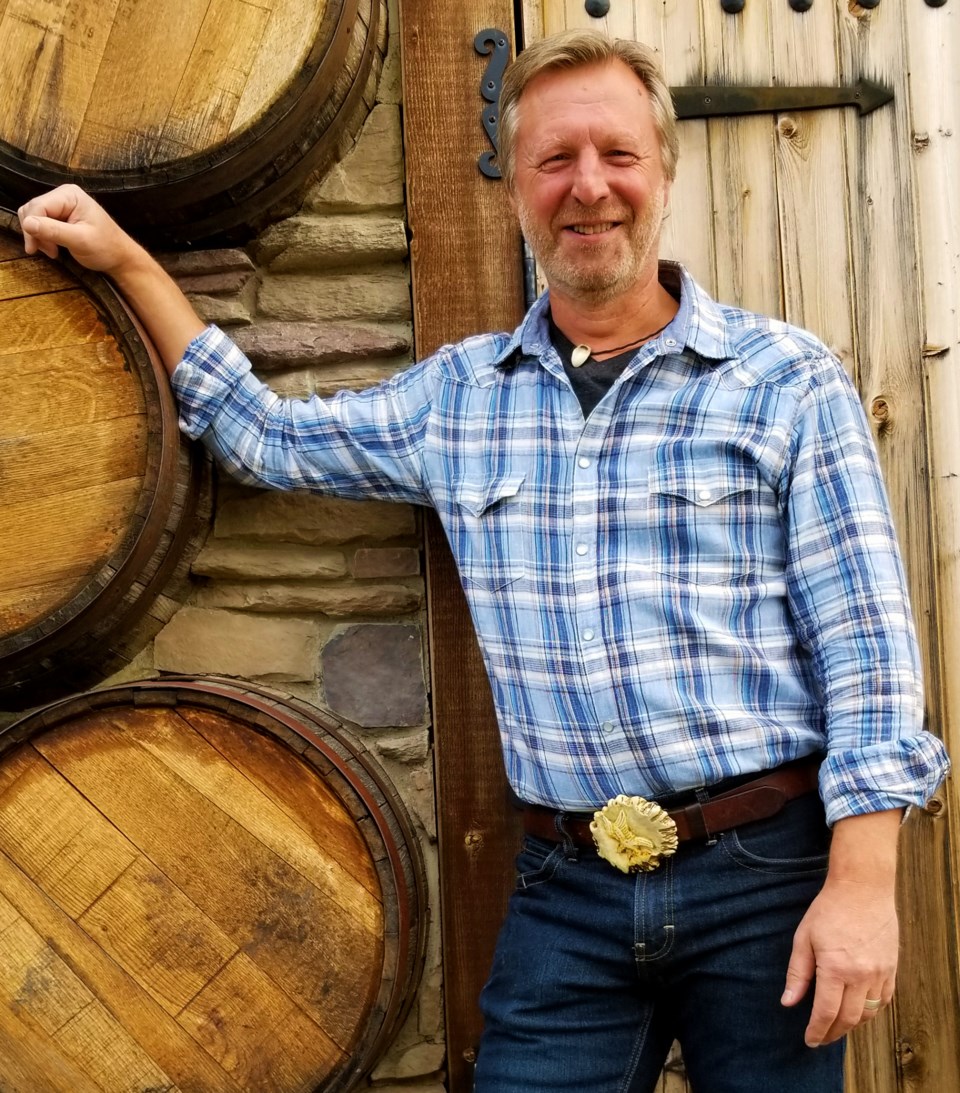A Foothills business owner and tourism association president is ready to represent the Millarville area at the council table.
Hugo Bonjean, who owns Spirit Hills Winery and is the president of the Foothills Tourism Association, has entered the race for County council in Div. 3 with a focus on economic development, tourism and removing barriers from existing, new and prospective businesses.
“I have been approached by many businesses and I hear they have issues with the County on actually running their business and growing it,” said Bonjean.
While he said it doesn’t seem as though councillors or administration are working to make it difficult for business owners to succeed, there are inherent issues with the existing land-use bylaws that are restrictive for many businesses.
He would like to be a strong voice at the table to advocate for change to the bylaws and make doing business easier in the Foothills.
“The County is missing certain aspects that allow the economy to develop this area,” said Bonjean. “For instance, the traffic limitation that exists for businesses here does not exist anywhere else.”
Recent research conducted by the Culinary Tourism Alliance on behalf of the Foothills Tourism Association revealed other jurisdictions have some restrictions on parking, but not on the number of customer visits to a site.
It’s hampering the possibilities for agritourism and home-based businesses to expand and enhance their operations, he said.
“That’s a huge limitation on allowing businesses to develop a customer base,” said Bonjean.
He said the County needs to work with industry and business owners to drive economic development, and he’s prepared to jump into that work.
Focusing on economic development can alleviate issues in other areas like rural crime and keeping young people in the County, he said.
“Give people a job and crime rates drop,” said Bonjean. “And creating an economy and developing that economy, and certainly the agritourism component of this, will allow multi-generational farms to stay within the family.
“It will allow to provide jobs for our young people who grow up in this community.”
The County is at a pivotal moment in its history, he said, adding the issues it faces with development have been highlighted with the Calgary Metropolitan Region Board.
Agricultural land could be in jeopardy if Foothills County doesn’t take control, similar to jurisdictions like Washington, D.C. where the area has been carved into small acreages without quality ag land, he said.
"That beauty, that agricultural and ranching heritage will disappear,” said Bonjean. “We need to take a visionary approach to this and say, there’s a city of 1.2 million people, how else can we benefit from that as a region rather than keep subdividing all the land we have and losing all this beauty?”
The answer is inviting them to experience agritourism opportunities. According to the Culinary Tourism Alliance’s research, tourism in the County could amount to about $77 million annual revenue for the region, he said.
Part of the change should also be in taking a proactive approach with mindful development and subdivision, he said.
When people are setting to retire and want to subdivide property, they shouldn’t always be able to take five acres out but should be limited to at least 21 acres, he said.
“Twenty-one acres still stays as agricultural land, keeps the agricultural land designation, and the County would allow agritourism on those parcels,” said Bonjean. “On 21 acres you could actually run an agritourism business, or you could run a mushroom farm, or teach people certain classes.
“There’s so much opportunity, but it just does need somewhat of a different approach at the County level.”
Bonjean said he would also like to look at finding more efficiencies to save taxpayer dollars – not necessarily by slashing services or taxes, but investigating technology that could revolutionize how the County does business and make the municipality more efficient.
“There is technology out there and opportunities not being looked at and adopted by the County that could make it more efficient, that ultimately uses taxpayers’ money more efficiently,” he said.
Improving service levels and costs could also be measured by asking residents specifically how they feel the municipality is performing as far as services provided and value for money, he said.
“Getting feedback loops and creating objective and consistent measurements, service measurement systems in place so the feedback is not just anecdotal, but it actually is something measured on a consistent basis,” said Bonjean.




